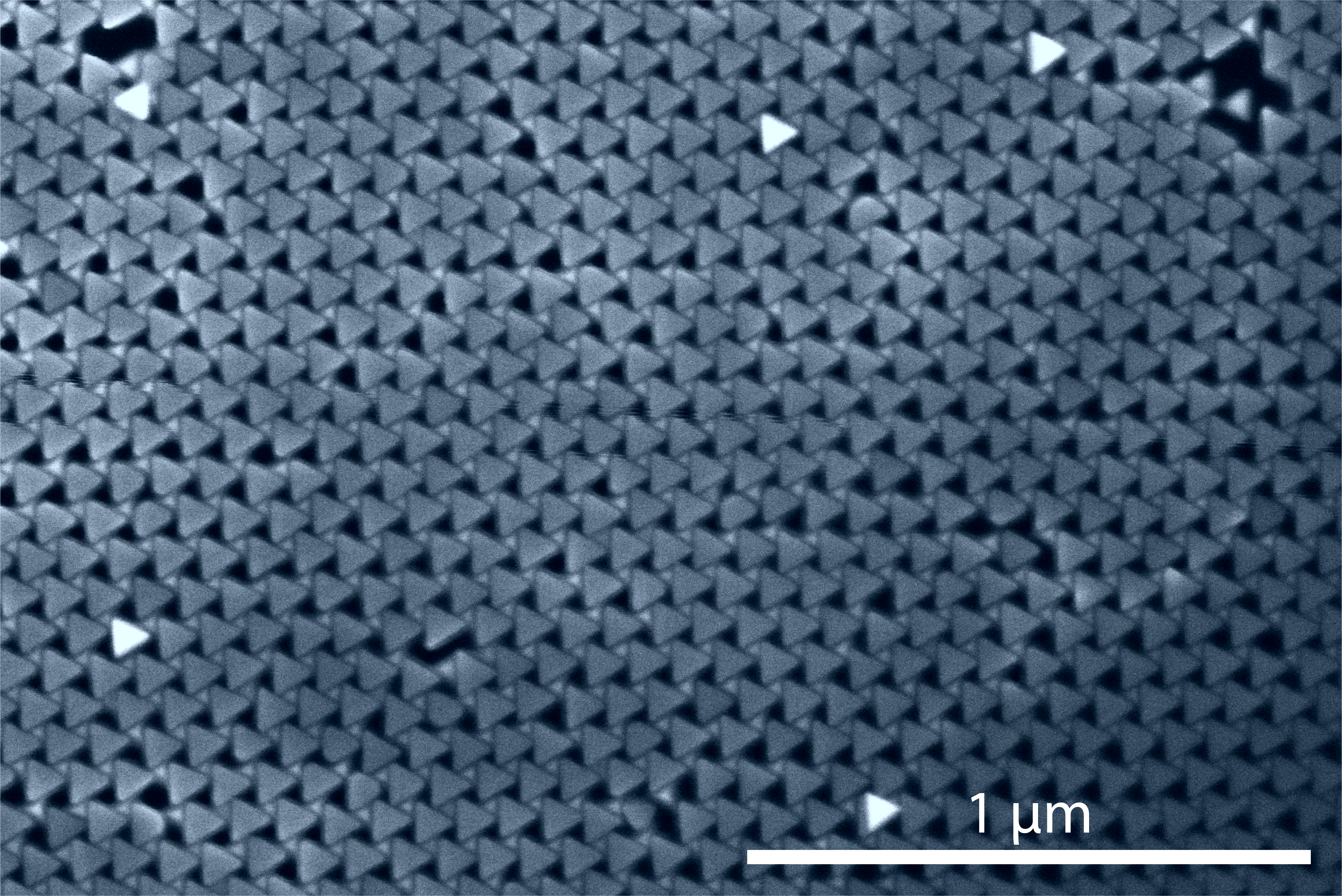Interviews
A Chat with Frontiers Speaker, Matt Jones
February 23, 2023

Frontiers in Nanotechnology speaker Matt Jones gave us a preview of his upcoming seminar on the fundamental questions in nanoscale surface chemistry
Tell us a little bit about yourself and your journey to Northwestern University and now Rice University.
My name is Matt Jones, I’m an Assistant Professor of Chemistry and Materials Science and NanoEngineering at Rice University. I grew up in San Diego. So absolutely perfect beautiful weather. And then, I moved to Pittsburgh for Carnegie Melon, and that was a huge shock. I had never seen snow fall from the sky.
I was with the Mirkin Group at Northwestern from 2007 to 2013 for my PhD and then did my postdoc with Paul Alivisatos at Berkeley College of Chemistry, where I investigated single-particle non-equilibrium shape transformations of metal nanocrystals using liquid-phase transmission electron microscopy.
Do you miss Chicago at all?
I love Chicago, it’s a great city. But I can imagine right now, for you, it’s just grey skies and dry.
Your seminar is titled “Developing a Mechanistic Picture of the Synthesis and Assembly of Inorganic Nanomaterials.” What is it that excites you about the mechanistic understanding of nanoparticle synthesis in assembly?
The thing that animates this work is the feeling and observation that there are a lot of reactions that people carry out, if you want to think about them as reactions between nanoparticles in nanoscience, and we don’t know how they work.
You mention “mechanisms” a lot in your seminar. Why are mechanisms so important?
Chemists talk all the time about mechanisms. How does a particular organic reaction work at the level of individual electrons, and how do they move around? And that’s really important for chemists to understand because that lets you design any molecule that you want.
What is the state of chemistry and nanoscience today, and where do you think it’s heading?
Chemistry is at an incredible level where we can put almost any atom in any location in any molecule that they want. And the only reason they got that far was by understanding at a detailed level the mechanism of how those reactions work.
I see nanoscience at a crossroads, where if we ever want to have that same level of control or be able to build a nanostructure for whatever application we want, we better understand mechanistically how all those things work. And we currently don’t.
Is mechanism something that you stress to your students?
That’s the motivating thing with my group. I tell them to take a step back, try to figure out mechanistically how all these things work, and use that to build whatever thing we want out of nanoparticles.
How large is your group?
I oscillate between nine and twelve people in my group. I’m not a Chad Mirkin level…yet. I’m working on it. I want to get to 70.
What is something about your time with Chad that comes up with your students?
I tell my students this sometimes. I remember one of my final papers I brought to him before I graduated; I hand it to Chad, he’s reading it, and he’s quiet and keeps reading it, and 10 minutes in and he’s said nothing. And I don’t know if this is a good thing or a bad thing. And he says to me, “Jones, I can’t find anything wrong with this.” That was it. I’ll graduate now.
How can people keep up to date on your work?
The Jones Lab at Rice University website (joneslab.rice.edu) is where we post all our news. I am on twitter @JonesMattRob.
Matt Jones is speaking at Frontiers in Nanotechnology Seminar Series on Friday, March 03 at 11:00 am in Ryan Hall #4003. Be sure to stay updated on this and future seminar speakers at iinano.org/frontiers.